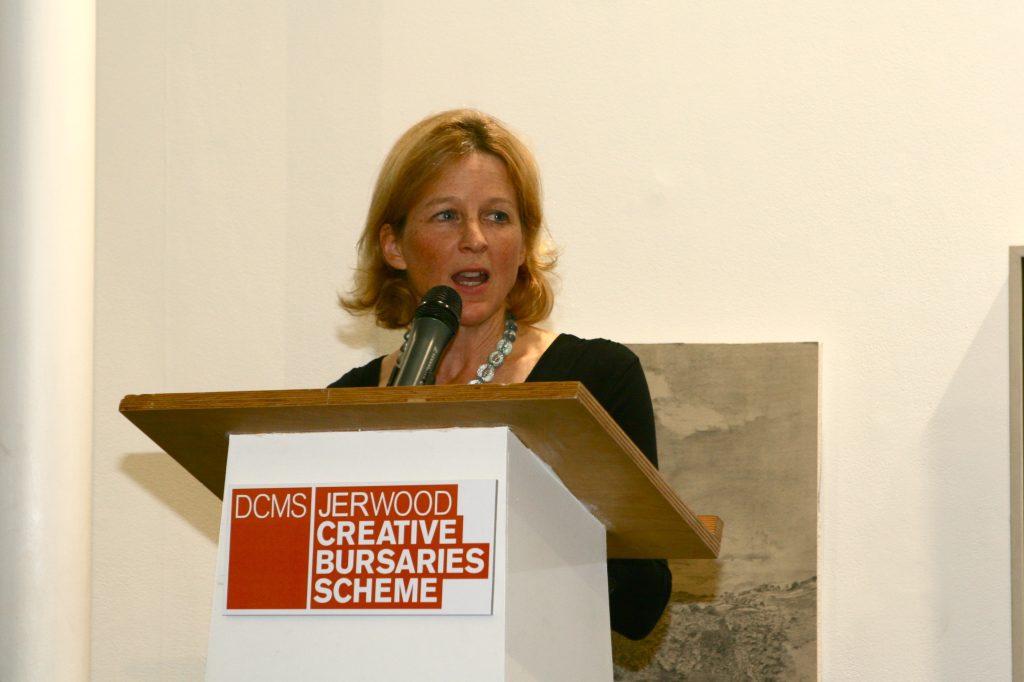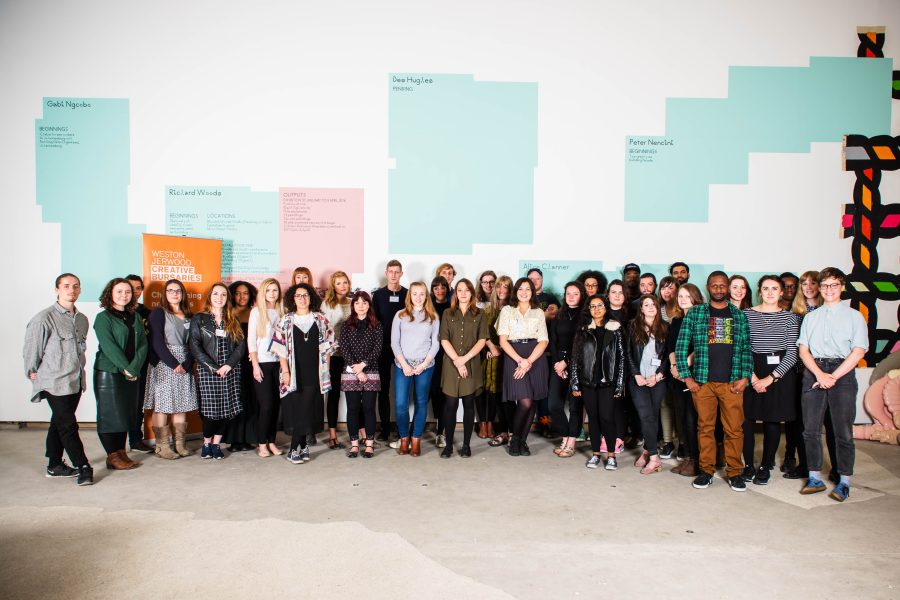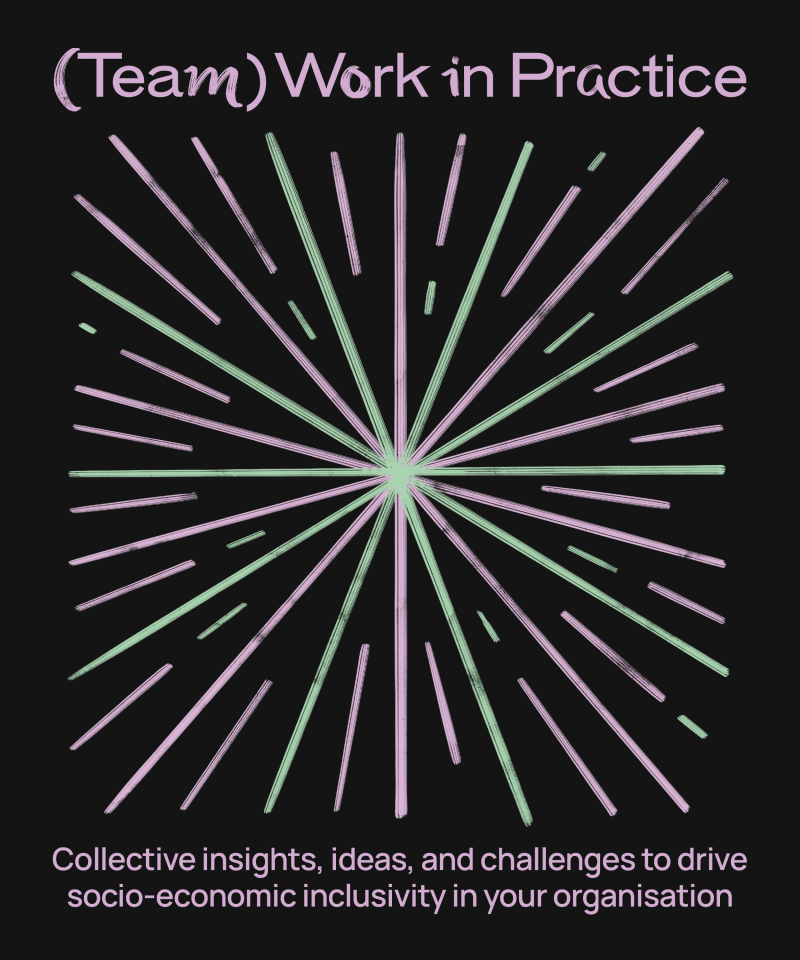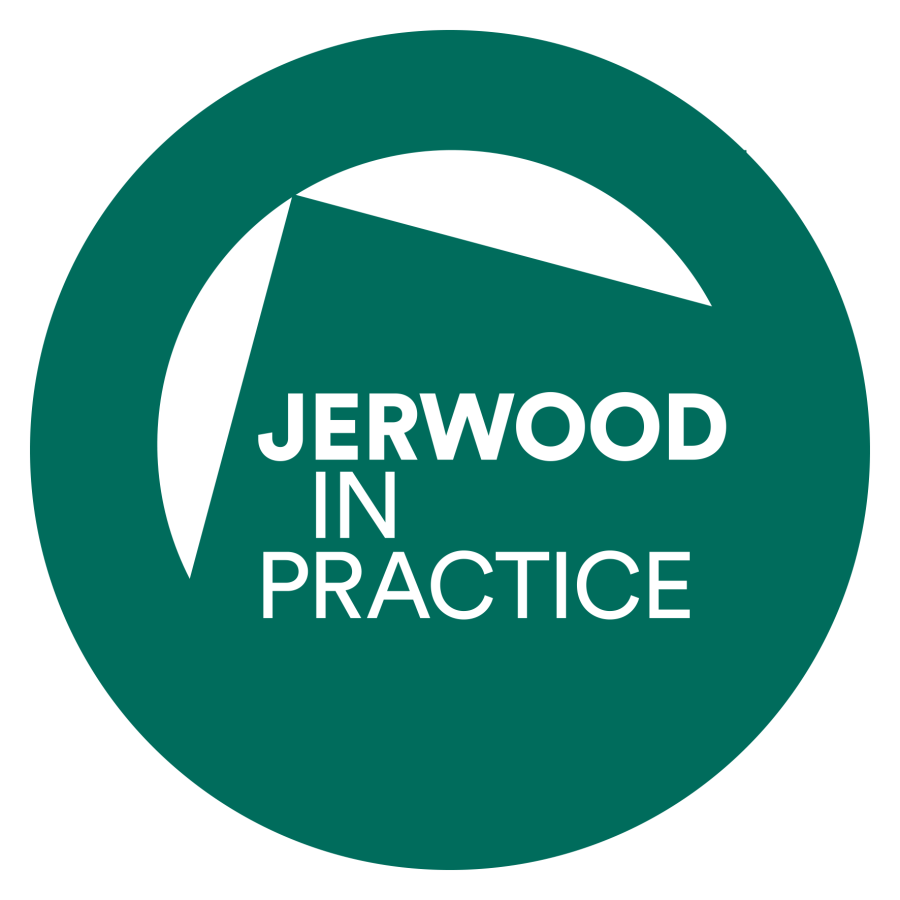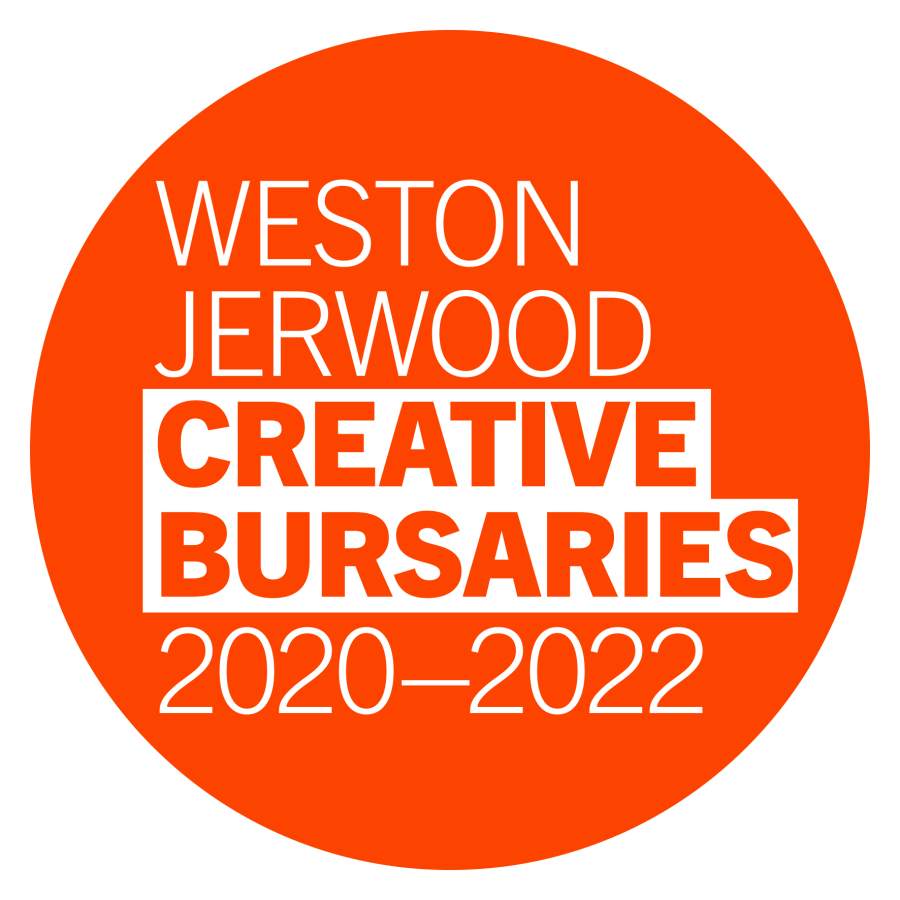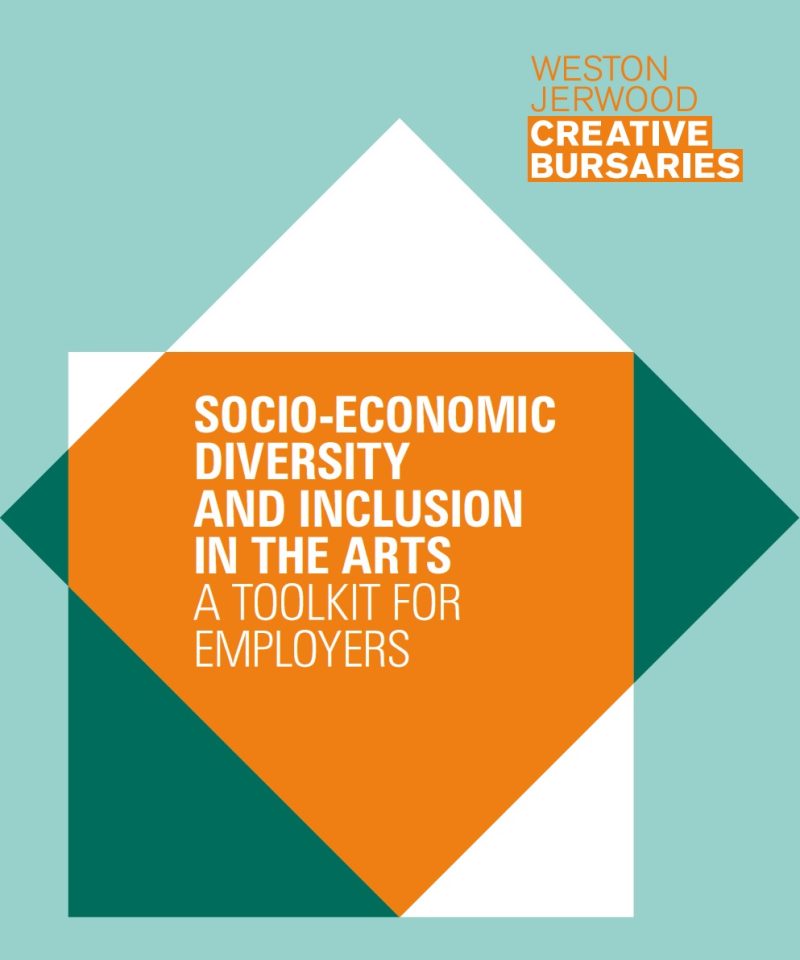Thirteen years ago I was handed the task of setting up this programme. It was the final days of the New Labour government, and Margaret Hodge, Minister of State for Culture at DCMS at the time, invited the Chair of Jerwood Foundation, Alan Grieve, to a meeting. She wanted to offer Jerwood Arts funding to address an issue she felt really passionate about: arts graduates who had fought against the odds to go to university, but who would come out at the other end facing yet more barriers. Of course, in those halcyon days they were fortunate enough to be supported by maintenance grants as students, but there was no acknowledgement that the sector where they were hoping to find employment favoured middle class graduates, hiring mainly on the basis of unpaid internships and backdoor connections. The much-promised university for all did not deliver fair entry to jobs in the arts.
Even though I had been working in the arts for a few decades by this point, I was shocked to learn the statistics. There were so many barriers which, once uncovered, could not be ignored. So, the programme set out to support those with creative potential who were very unlikely to be hired when their CVs were compared to those whose networks ran deep into the arts world and could afford to undertake unpaid internships in New York, Paris or Rome.
The first Fellows who joined the programme totally blew me away. Less a breath of fresh air and more a tornado of ambition and talent. By October 2010, when we held the launch of our first edition of 42 Fellows, I was hooked. Ever since setting up a theatre company to produce new writers back in my 20s, I have found it thrilling to work with people who are just starting out and love watching them find their feet and go on to do great things.
The joy of my job has been having that long view, seeing those who started as far back as 2010 work their way through the sector. I am always on the look-out for news of the Fellows, consciously or unconsciously, and am delighted when I bump into them – recently, Alice working at the RSC, Natasha as Duty Manager at Kettle’s Yard – and I cheer their every step. The programme hasn’t been transformational for all Fellows and it isn’t a magic bullet which has propelled them to fame and fortune. It has opened doors which have previously been shut, and it has put them in a position which they likely would not have been in otherwise.
The Weston Jerwood Creative Bursaries programme began life supporting individuals and over the years, more recently and especially during the pandemic, has become just as much about the issues it raises, about sector change, social justice, levelling up, levelling the playing field, diversity, equality, equity, inclusion, fairness, the glass ceiling. It has been great to play a part in these sector- and nation-wide debates and to see the programme in the context of the changing policy and culture shifts. The programme has flexed and grown in response to what we’ve learnt ourselves and from what others have done, so it’s never stood still. We’ve gathered amazing partners, as funders, as host organisations and as advisors, all of whom have been attracted by the programme’s very practical response to the issues.
But whilst there is much talk and valuable research about what needs to change and why, this programme has always been focussed on actions. It delivers practical support – providing jobs and salaries, delivering training and real life experiences beyond the jobs, encouraging the peer support from their cohort of Fellows and offering the wider networks that Jerwood Arts can tap into. And now there’s a WJCB Toolkit Workshop programme offering space online and in venues up and down the country for people to come together, discuss what works in improving socio-economic diversity in their organisation, and help them make changes.
For me, this has been the not-so-secret secret of the programme’s success. We have focussed on each Fellow as an individual, understanding that everyone needs something a bit different to break down the barriers they face. For some, it has been having someone outside their host organisation to help navigate them through a difficult situation. Others need an introduction to a key contact, someone to read their applications and give them honest feedback and others just need someone to give them a bit of encouragement when times are tough.
I don’t mean in any way to suggest this is or has been a one-way exchange. Personally, I have learnt so much from all the Fellows – their knowledge, experience, creative energy and know-how – and am very lucky to have acquired so many friends across the sector, across art forms and across the country. As long as I go on bumping into them wherever I go in future, I will count myself very lucky indeed.
As will we all.
Kate Danielson, Director, Weston Jerwood Creative Bursaries 2010-2023.
